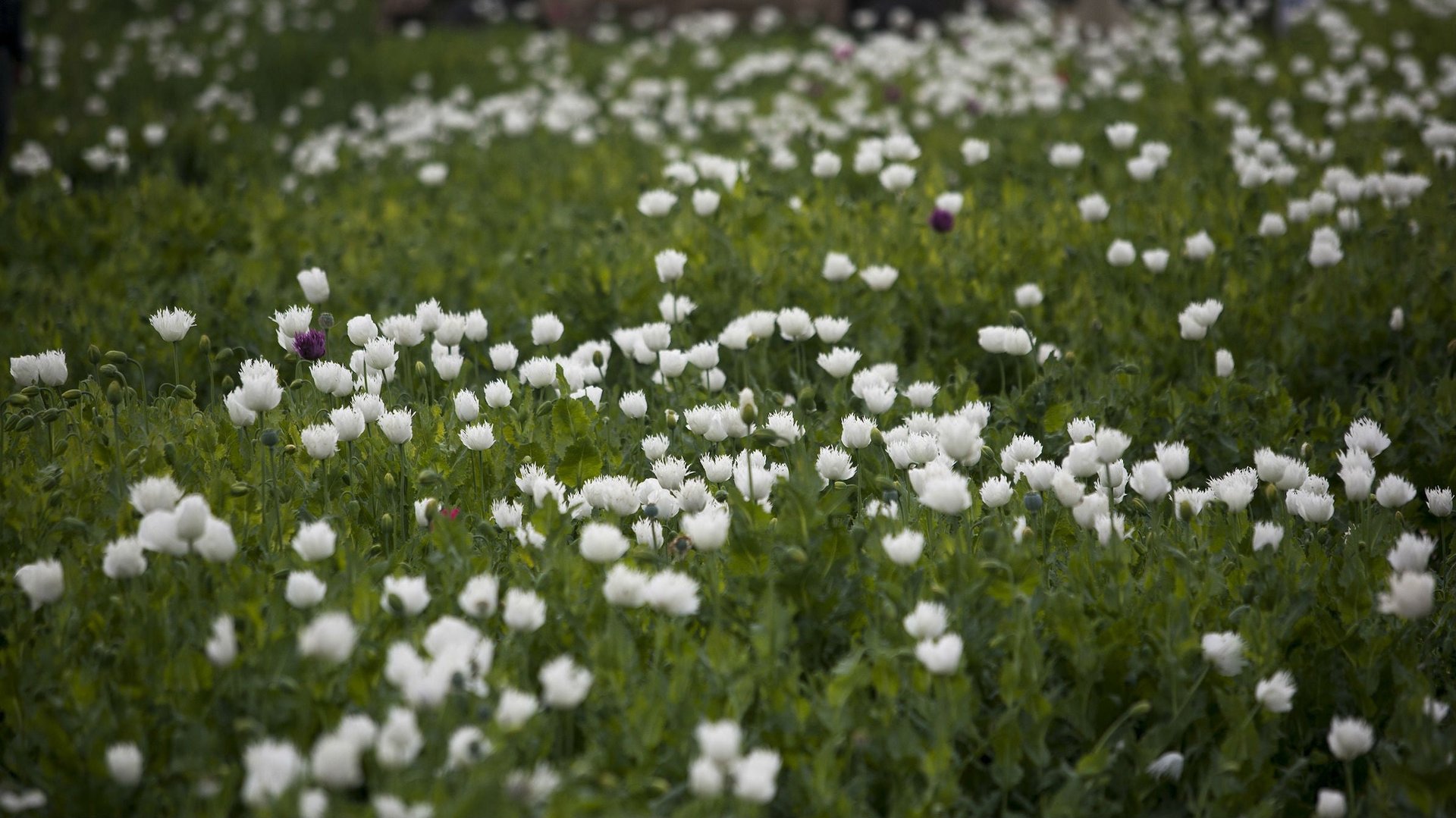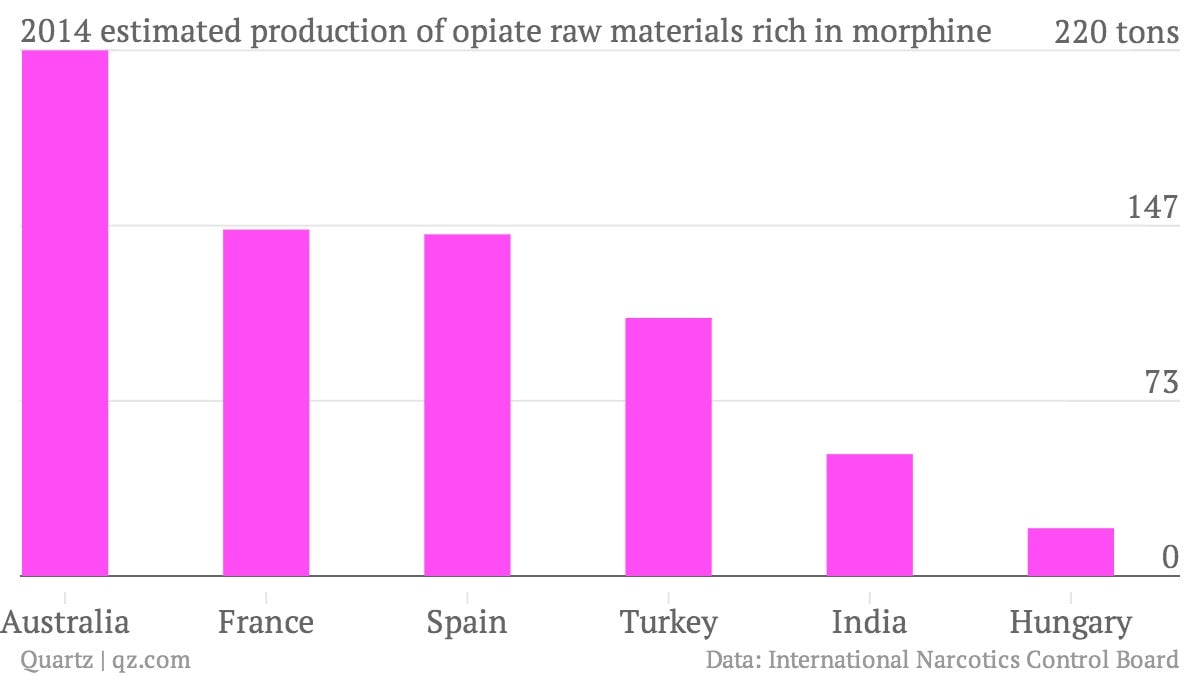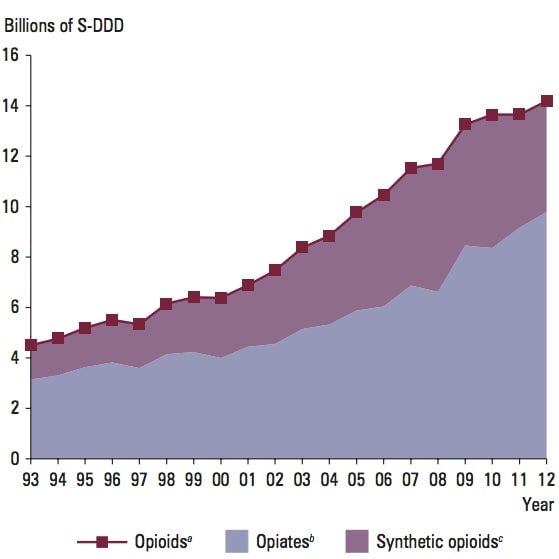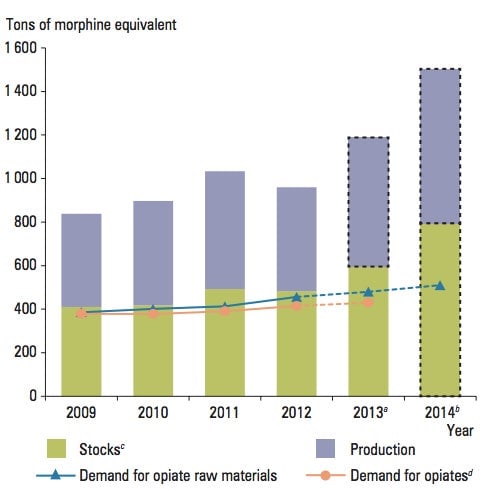Is the global craving for painkillers outstripping Tasmania’s poppy supply?
More than half of the world’s raw materials for opiate painkillers like morphine and codeine come from the remote island of Tasmania, but according to Big Pharma, it’s not enough. GlaxoSmithKline, Johnson & Johnson, and TPI Enterprises of Australia are lobbying the Australian government (paywall) to allow opium poppies to be grown on the mainland as well.


More than half of the world’s raw materials for opiate painkillers like morphine and codeine come from the remote island of Tasmania, but according to Big Pharma, it’s not enough. GlaxoSmithKline, Johnson & Johnson, and TPI Enterprises of Australia are lobbying the Australian government (paywall) to allow opium poppies to be grown on the mainland as well.
Australia is one of the few countries the United Nations allows to produce opium poppy commercially; Turkey, France, Spain, Hungary, and India are the other major players.

A combination of bad harvests and increasing global consumption of painkillers around the world is putting pressure on supplies. According to the UN, demand for opiates has more than tripled between 1993 and 2012. And demand from expanding middle class consumers around the world, especially is Asia, is expected to keep the pressure on.

However, the UN says there’s no need to worry about a shortage in the near future. Stockpiles of opiate materials rich in morphine are estimated to have reached 596 tons (p. 99), or 540 tonnes, by the end of 2013—enough to cover about 15 months of estimated global demand in 2014—and countries are planning to increase production this year. The UN said the global supply of opiate materials of thebaine, another common ingredient in painkillers, should also be “more than sufficient” to cover global demand in 2014.
